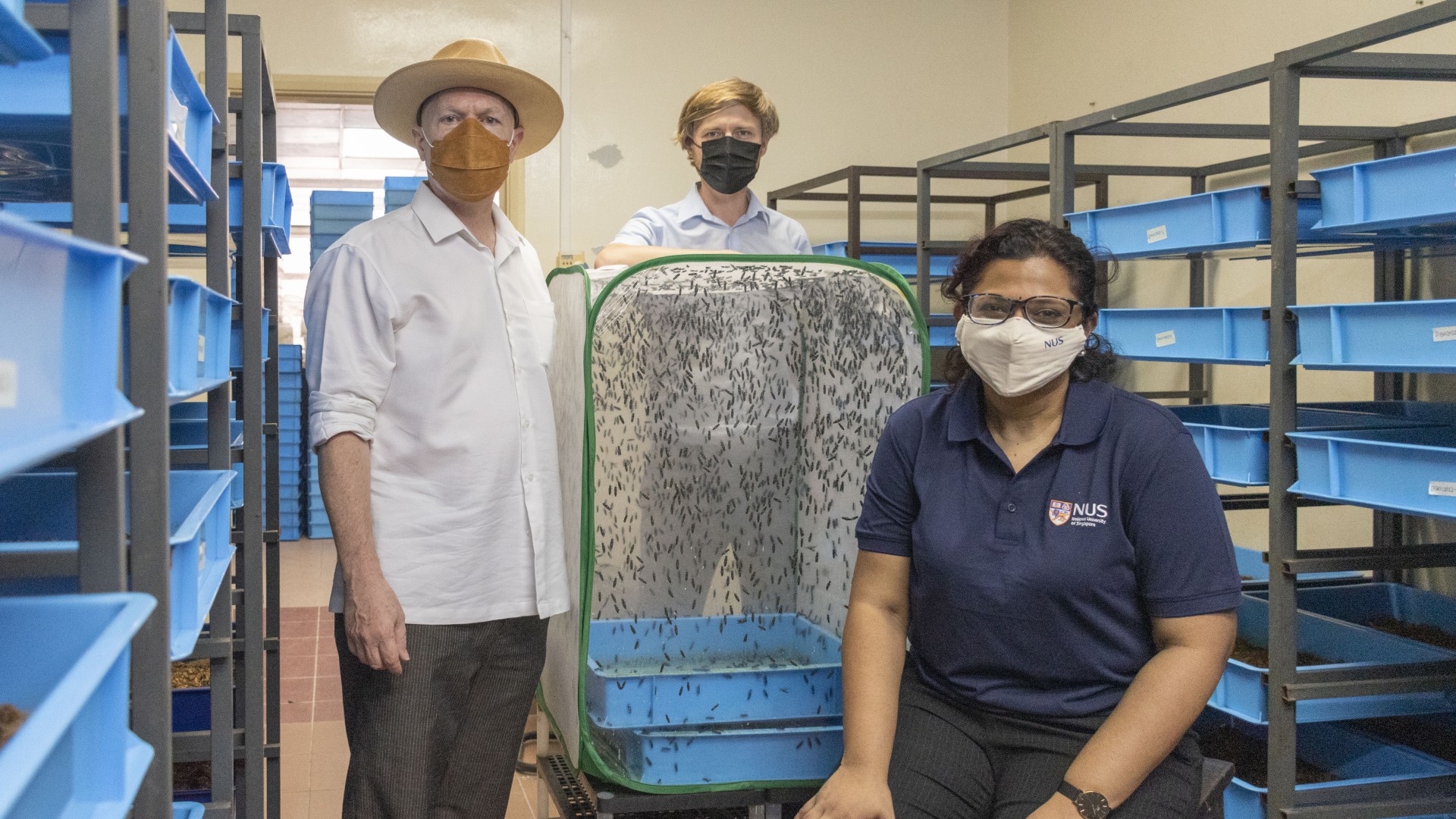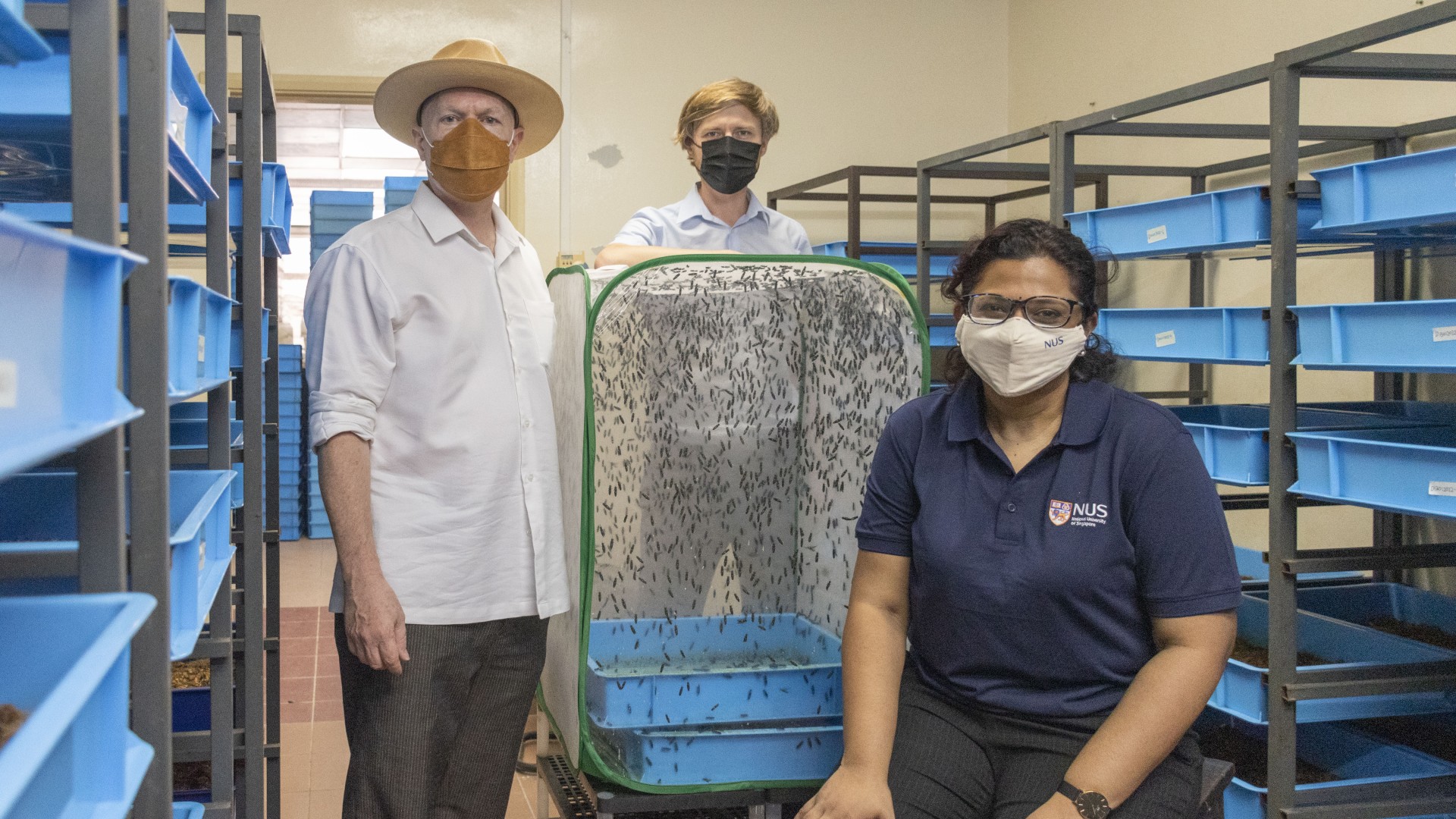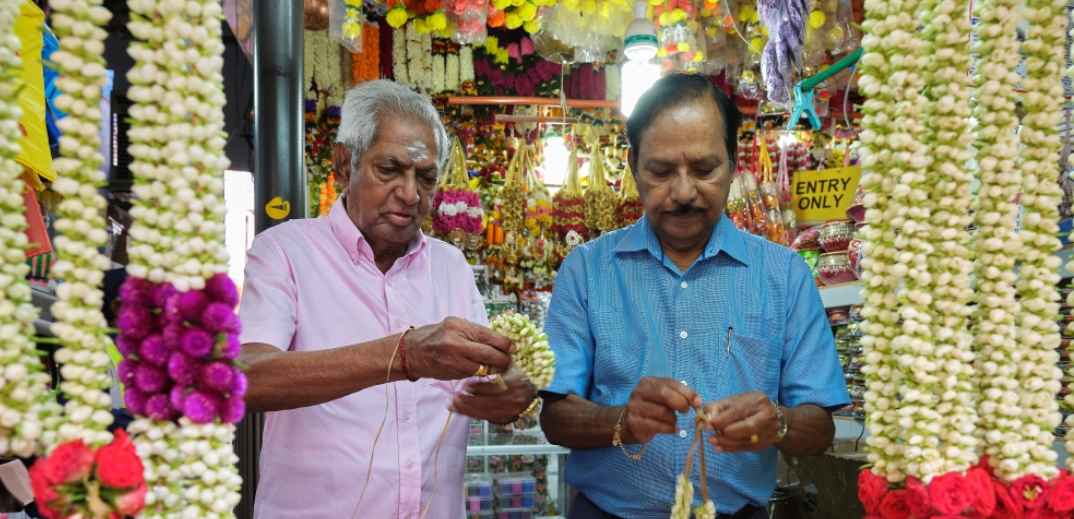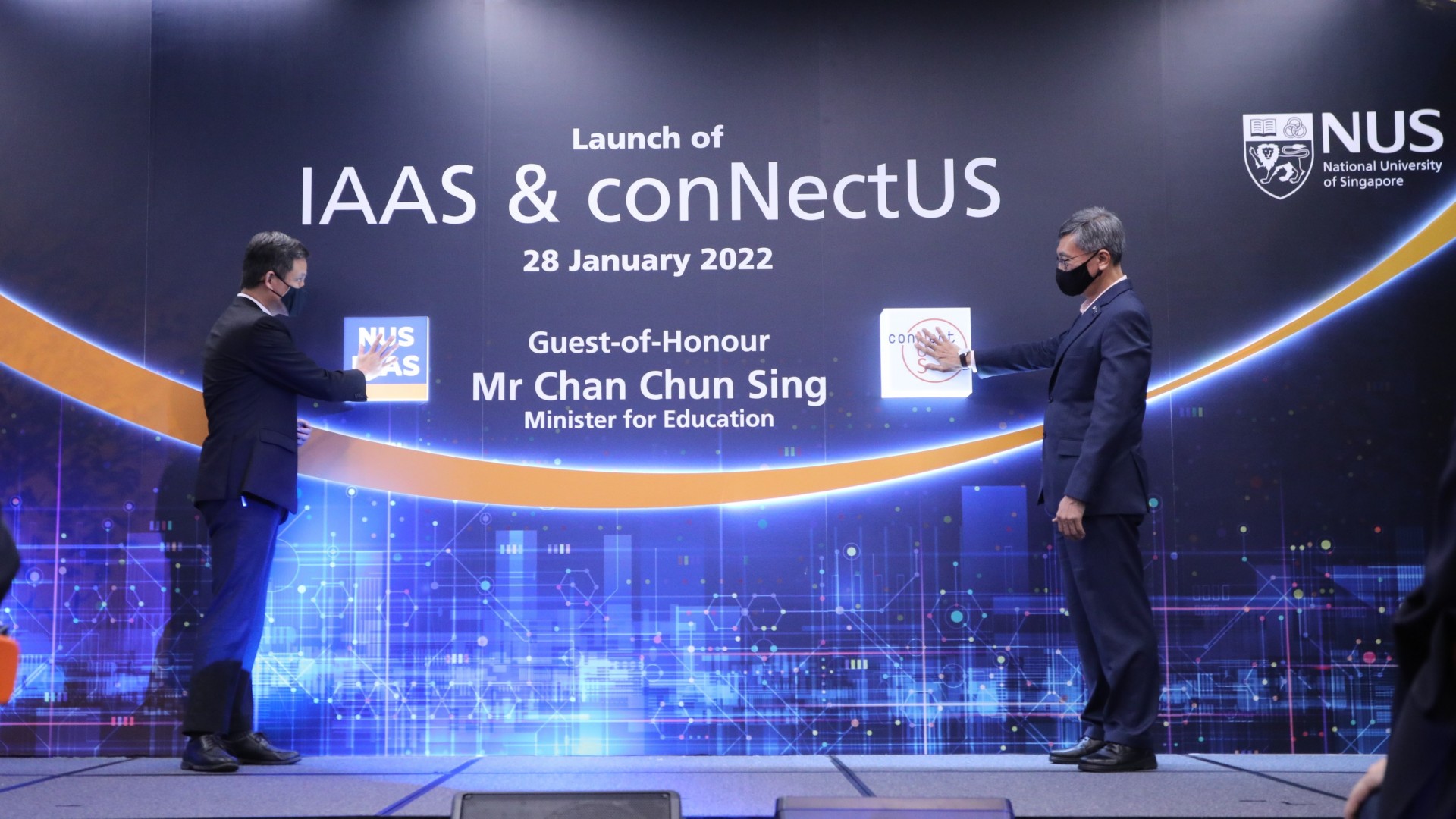
An interdisciplinary team of scientists and urban designers led by the National University of Singapore (NUS) and the Singapore-ETH Centre (SEC), in collaboration with ETH Zurich and the Nanyang Technological University Singapore (NTU Singapore), aims to develop a blueprint to integrate food waste management and sustainable food production in urban settings like Singapore using tropical black soldier flies.
The three-year research project is led by Assistant Professor Nalini Puniamoorthy from the NUS Department of Biological Sciences and Professor Stephen Cairns from the SEC’s Future Cities Lab Global programme. The project brings together local and international scientists, urban designers, as well as industrial collaborators from waste management and animal nutrition, to integrate food waste into a fully circular bio-economic food production system for cities using black soldier flies.
The core team also consists of Singapore and Swiss-based researchers, including Assistant Professor Alexander Mathys and Dr Moritz Gold from the ETH Zurich Sustainable Food Processing Group; Associate Professor Roman Carrasco from the Department of Biological Sciences; Dr Liu Mei Hui from the NUS Department of Food Science and Technology; and Assistant Professor Janice Lee and Assistant Professor Joyce Ong from the NTU Singapore Asian School of the Environment.
Increasing food security: Linking sustainable food waste management and food systems
Singapore faces a twofold challenge in its journey to food security – increasing local food production and waste food upcycling.
Local efforts to produce fish, poultry, eggs, fruits and vegetables are heavily dependent on imported agricultural inputs, such as mineral fertilisers and animal feeds. These imports increase the cost of local food production and can have adverse impact on the environment. Producing these agricultural inputs domestically can alleviate some of the burdens and costs of local food production. And yet, Singapore incinerates nearly 700,000 tons of food waste a year, which results in a loss of valuable nutrients which could have been transformed into agricultural inputs.
This project “Urban Food Waste Management and Food Systems Using Black Soldier Flies” aims to develop methods to produce safe and nutritious animal feed and fertiliser for vegetables from heterogenous food waste using black soldier fly larvae. This could ease the reliance on imported agricultural inputs, improve food security, and reduce Singapore’s environmental footprint.
Black soldier fly larvae are fast-growing and can transform food waste into a high-protein feed ingredient for poultry and aquaculture diets. The mineral-rich black soldier fly frass – nutrient-rich residue of larval waste bioconversion – has the potential to supplement or even substitute commercial fertilisers in both soiled and soil-less agriculture. The black soldier fly larvae themselves, which are high in proteins and fats, can also be used in animal feed formulations.
“This project focuses on strengthening food security through a circular process where the value of food waste is captured and linked to food production. This large-scale endeavour will bring Singapore closer to its 30 by 30 goal of increasing the capability and capacity of growing 30 per cent of food needs locally by 2030. We are conducting research in a multi-faceted manner to develop an impactful blueprint for sustainable food waste management which contributes to an eventual increase in food production in urbanised Singapore. In addition to a strong interdisciplinary team of experts, we look forward to attracting a diverse talent pool comprising post-doctoral fellows, research assistants and students to contribute to our research,” said Asst Prof Puniamoorthy.

Processes designed for Singapore’s social and urban landscapes
Unlike most commercial approaches where black soldier fly larvae are used to process homogenous side streams of food production, such as okara or spent brewery grains, the research team is looking at breeding larvae that can process heterogenous waste to suit Singapore’s diverse food consumption patterns. In addition, to effectively integrate the circular system into the urban fabric of a dense city and the lives of the residents, urban design plays an important role.
“Designing fully circular food systems for high-density cities like Singapore requires experimentation at different scales,” said Prof Stephen Cairns. “Larger centralised black soldier fly larvae processing facilities could be integrated with food production areas to reduce waste at source, and further downstream at hotels and wholesale retailers, while compact decentralised facilities could be linked to restaurants, hawker centres and urban farms. Even smaller, mobile units might cover more ground in residential areas, community farms, and construction and harbour sites.”
A five-pronged interdisciplinary approach
The team of experts in insect rearing, urban design, sustainability as well as food safety and nutrition will take a synergistic, five-pronged approach with the aim of making Singapore a global frontrunner on fully circular food systems by upcycling food waste.
The research spans five interrelated themes:
1. Develop processes for black soldier flies to break down food waste efficiently using novel machine learning approaches in larval rearing
2. Integrate waste management and black soldier fly bioconversion in Singapore in a sustainable way at different scales through urban design and network concepts
3. Assess the environmental impact of using black soldier fly larvae as agricultural inputs through cost-benefit analysis
4. Evaluate food safety and nutritive values of black soldier fly larvae for animal feed and black soldier fly waste as fertiliser for vegetables
5. Expand industrial partnerships and establishing mechanisms to facilitate community involvement in food waste upcycling
Based in Singapore and funded by the National Research Foundation, Singapore (NRF) under its Campus for Research Excellence and Technological Enterprise (CREATE) programme, the project aims to deliver environmental, social and economic benefits to Singapore.










